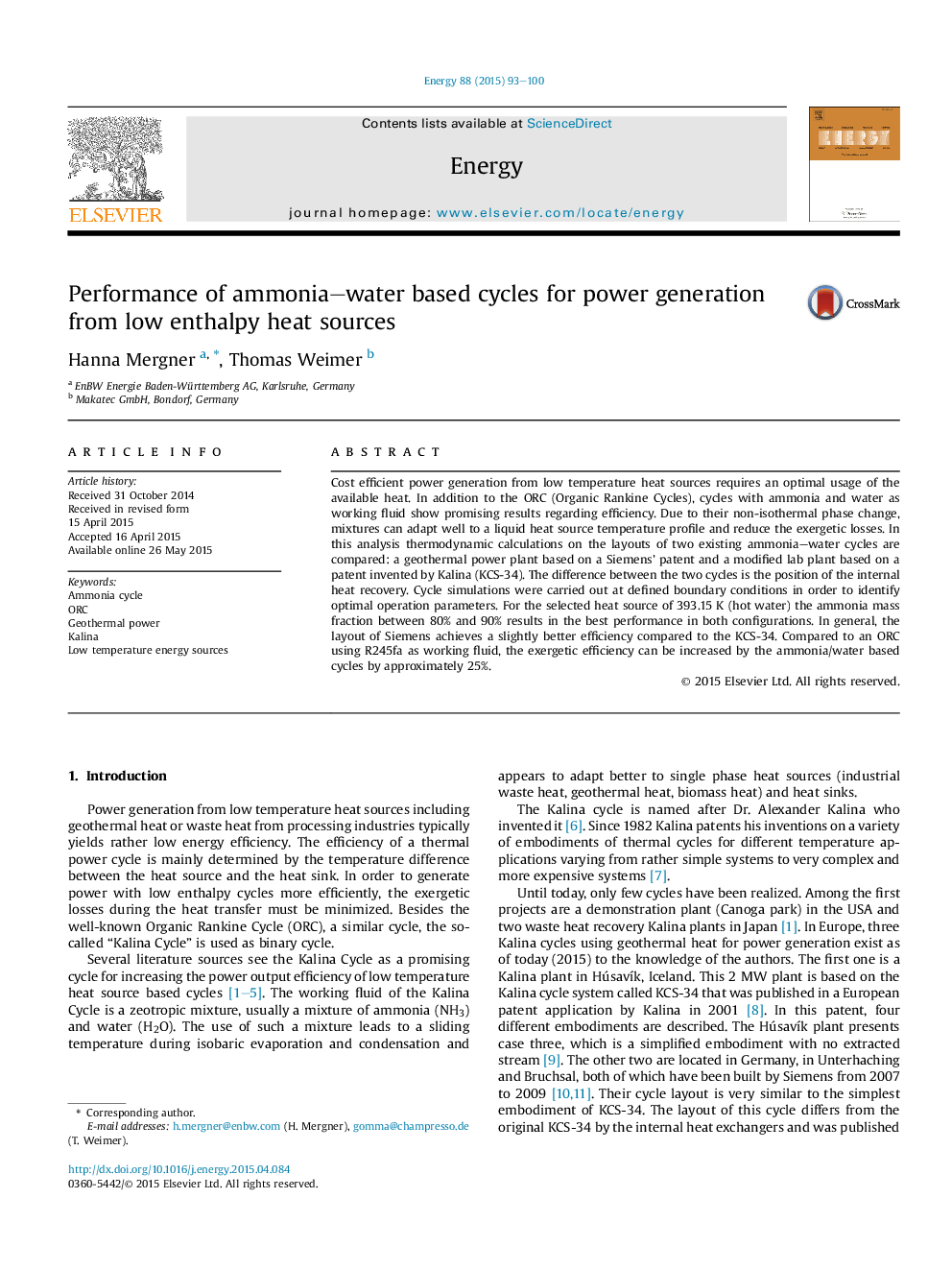| کد مقاله | کد نشریه | سال انتشار | مقاله انگلیسی | نسخه تمام متن |
|---|---|---|---|---|
| 1732125 | 1521458 | 2015 | 8 صفحه PDF | دانلود رایگان |
• Two NH3/H2O based cycles based on existing plants are analyzed and compared.
• A simple KCS-34 focuses on a high enthalpy difference at the turbine.
• The Kalina cycle of a Siemens patent KC SG1 runs on a high vapor mass flow.
• The layout of the KC SG1 shows slightly better results compared to the KCS-34.
• NH3/H2O cycles show an efficiency increase compared to a regular ORC with R245fa.
Cost efficient power generation from low temperature heat sources requires an optimal usage of the available heat. In addition to the ORC (Organic Rankine Cycles), cycles with ammonia and water as working fluid show promising results regarding efficiency. Due to their non-isothermal phase change, mixtures can adapt well to a liquid heat source temperature profile and reduce the exergetic losses. In this analysis thermodynamic calculations on the layouts of two existing ammonia–water cycles are compared: a geothermal power plant based on a Siemens’ patent and a modified lab plant based on a patent invented by Kalina (KCS-34). The difference between the two cycles is the position of the internal heat recovery. Cycle simulations were carried out at defined boundary conditions in order to identify optimal operation parameters. For the selected heat source of 393.15 K (hot water) the ammonia mass fraction between 80% and 90% results in the best performance in both configurations. In general, the layout of Siemens achieves a slightly better efficiency compared to the KCS-34. Compared to an ORC using R245fa as working fluid, the exergetic efficiency can be increased by the ammonia/water based cycles by approximately 25%.
Journal: Energy - Volume 88, August 2015, Pages 93–100
